Let’s Talk About Business: A Corpus-Based Study of ‘Business’ Related Near-Synonyms and Their Teaching in Chinese as a Second Language
Zhong, Yin; Rao, Yujing
ISBN: 9789819705856
Location: Singapore, Singapore
Source: Chinese Lexical Semantics - 24th Workshop, CLSW 2023, Revised Selected Papers / edited by Dong Minghui; Hong Jia-Fei; Lin Jingxia; Jin Peng. Springer Science and Business Media Deutschland GmbH, 2024, p. 357-375
DOI: 10.1007/978-981-97-0586-3_28
<p>The inherent semantic relatedness and closeness of near-synonyms pose difficulties to second language (L2) learners in comprehending and applying lexical knowledge in real situations. Previous studies have shown a sophisticated corpus-based method of distinguishing Chinese near-synonyms from a more ‘theoretical-based’ approach, the application of corpora in learning near-synonyms in an L2 classroom, however, is underexplored. This study reports both the ‘theoretical-based’ and ‘pedagogical-application’ of using corpora in studying ‘business’ related near-synonyms, and a significant gap between the ‘theory’ and the ‘application’ is identified. Our findings not only affirm the ‘theoretical-based’ method in capturing subtle nuances of near-synonyms but suggest implications of ‘pedagogical-application’ in teaching and learning near-synonyms with corpora.</p>
Motivational dynamics in students’ English learning in the school-to-university transition
Rickard, Jonathan
Strategies to use Chatbots in a Beginner Japanese University Course
SHIOMI, Koji
Source: Paper presented at Engagement in the Digital Age: International Conference on Language Teaching and Learning, , Hong Kong, p. 112
Recently, the development of AI and ChatGPT has been progressing rapidly, leading to increased utilization in the field of education. ChatGPT, known for its flexibility and interactive capabilities, has emerged as a promising tool for supporting educational activities. In fact, there have been reports of practical implementations of ChatGPT in education, with many of them focusing on English language teaching. From an educational perspective, there is a relatively limited number of practical examples showcasing the application of ChatGPT in third language education, particularly in the context of Japanese language instruction. <br/>In this presentation, I will report on the practical application of Chatbots in a Beginner Japanese University Course. The goal has been to effectively utilize Chatbots to make Japanese language learning easier, or to enhance learning effectiveness based on individual needs. I have been monitoring students' usage practices and the content of their interactions.<br/> Based on the monitoring of student engagement with the Chatbot, the following areas were found to be beneficial: <br/>1)Hiragana and Katakana Learning, 2) Translation English into Japanese including word lookup, sentence lookup, Anime Japanese meaning lookup. 3) Research on Japanese Culture, etc.<br/>According to students’ comment, they found the Chatbot's interactive approach enjoyable. They appreciated the Chatbot's ability to provide support and teach in multiple languages, including English, Chinese, Japanese, and Romaji. <br/>Overall, this presentation will demonstrate the effectiveness of Chatbots as educational tools in a Beginner Japanese University Course. The findings highlight the positive impact of interactive learning, comprehensive language support, and the incorporation of cultural resources. These contributions pave the way for further advancements in Japanese language education and the integration of AI technologies in the classroom in Japanese Course.<br/>

